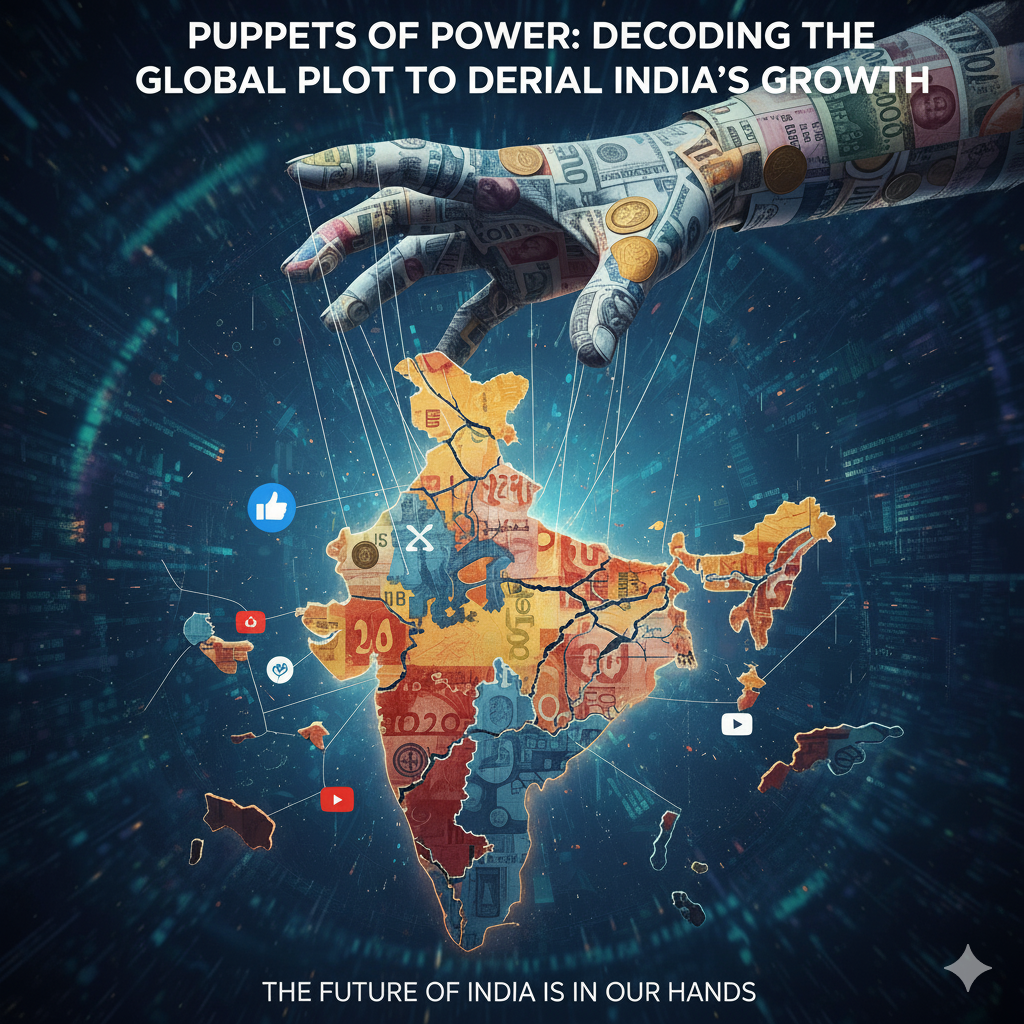WRITTEN BY : PRIYANSHU MOHANTY
As the future of India, if we prioritize partisan sentiments over the nation’s well-being we will soon be doomed.
In India, a significant number of individuals continue to support a particular political party that employs underhanded tactics to regain power within our political system. Recent events in neighboring countries like Pakistan, Sri Lanka, Indonesia, Bangladesh and Nepal have prompted various digital media personalities and leaders to speculate that India could face similar upheavals in the near future. To understand this better, let’s examine how deep state activities are unfolding and how certain political parties are exploiting them to orchestrate regime change by manipulating the youth.
Consider the 1957 elections in Kerala, where the Communist Party secured victory. This triggered U.S. deep state involvement, which collaborated with a prominent Indian political party by providing funding to incite chaos and ultimately topple the government. Fast-forward to more recent incidents, such as the 2020 Delhi riots and the 2020-21 farmer protests, where NGOs and specific media organizations played roles in funding and instigating unrest. NGOs have evolved into conduits for foreign money inflows and in the digital era, this influence manifests through social media platforms and YouTubers who receive substantial payments to disseminate misinformation – bullets of false facts designed to sow discord in our minds.
This pattern echoes what transpired in Pakistan, where the former prime minister raised concerns about CIA and U.S. activities, leading to a swift regime change. Similarly, China influenced political shifts in Bangladesh by leveraging massive infrastructure investments and diplomatic pressure under the Belt and Road Initiative (BRI). The motivations behind China’s actions include expanding the BRI in South Asia, securing control over strategic routes and ports like those in the Bay of Bengal and diminishing India’s influence in its neighborhood. Meanwhile, some media reports and analysts have alleged U.S. involvement in Bangladesh’s political changes, citing dissatisfaction with human rights issues, election conduct and proposals for foreign bases.
In Nepal, a notable example occurred in 2022 when USAID Administrator Samantha Power, alongside Nepali government officials, civil society and private sector leaders, announced up to $58.5 million in funding to advance democratic progress – part of a larger $659 million development agreement. This has raised questions about external influences on local politics. In Sri Lanka, China employed a mix of heavy loans, political funding and strategic port acquisitions to establish a firm grip, transforming economic partnerships into geopolitical leverage. This deep state presence poses a direct threat to India through strategic encirclement as Sri Lankan ports could serve China’s navy, eroding India’s dominance in the Indian Ocean. It also signifies a loss of India’s historical influence in the region with risks amplified by events like the 2014 docking of a Chinese submarine in Colombo. Sri Lanka’s debt trap serves as a cautionary model for China’s potential expansion in other South Asian nations, further jeopardizing India’s security.
These interventions are intensifying around India because of its emergence as a growing superpower with a robust economy – developments that foreign powers find difficult to accept. They are countering this rise by exploiting India’s sensitive fault lines: inciting religious divisions, imposing heavy tariffs, aligning with our adversaries and even funding major and local political parties to facilitate instability. Their ultimate goal is to establish a stronghold within our borders.
Amid these challenges, it is crucial for us to embrace a strong nationalist ideology that prioritizes India’s sovereignty and unity above all else. We must remain vigilant and discerning, avoiding manipulative facts propagated by biased sources that aim to divide us. While ideological differences are inevitable and can be debated constructively, if we allow ourselves to be misled by partisan groups into opposing our government without critical thought, we risk surrendering our nation to foreign influences. Let us reflect: true patriotism demands that we place the country’s interests first, fostering resilience against such external manipulations to secure a prosperous future for India.









